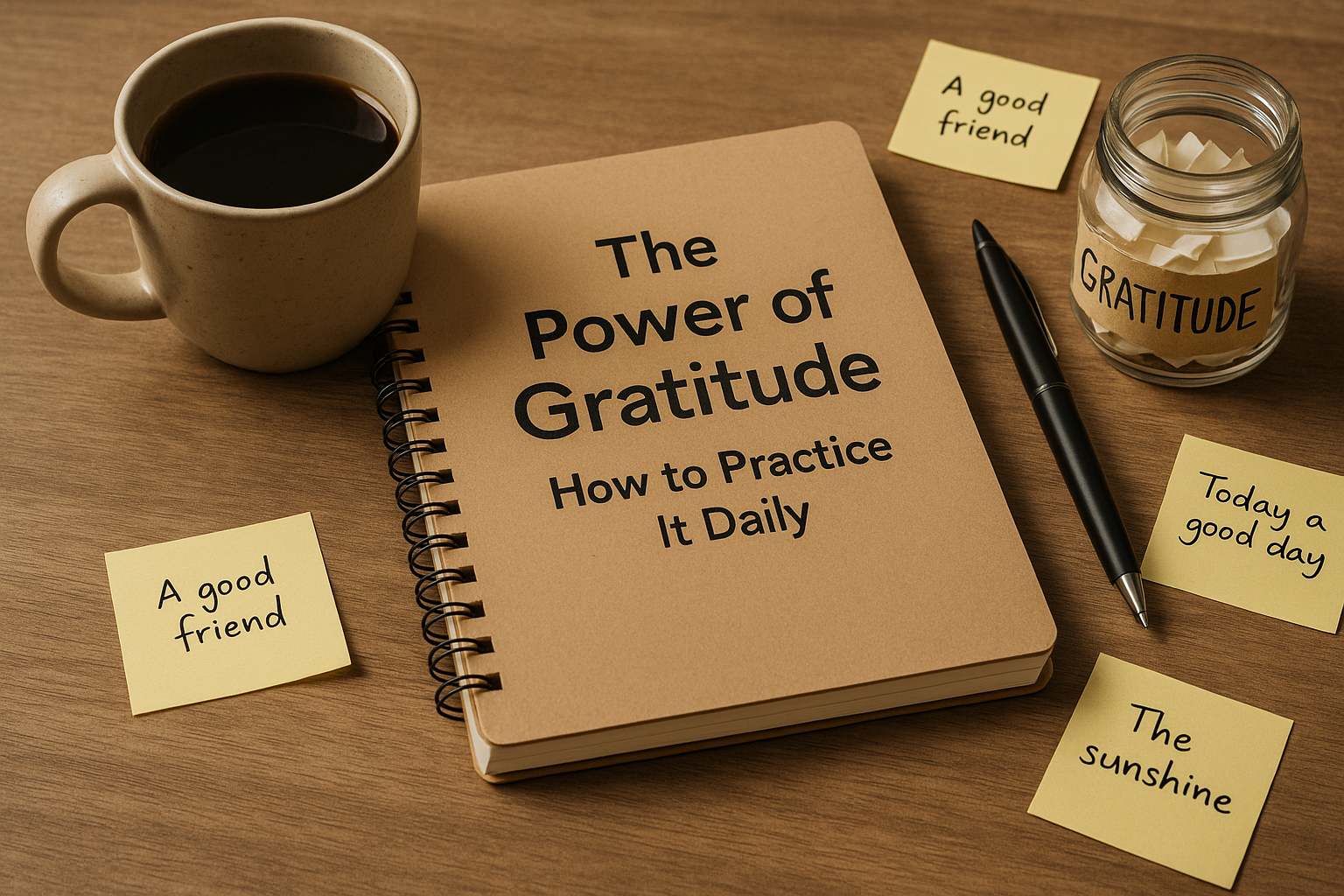Gratitude is one of the simplest yet most transformative habits you can cultivate. It shifts your focus from what’s missing to what’s present, from complaint to contentment, from scarcity to abundance.
And the best part? You don’t need to change your life to feel more grateful—you just need to change your perspective.
In this article, you’ll learn why gratitude is so powerful, how it impacts your mental and emotional well-being, and how to practice it daily in small, meaningful ways.
What Is Gratitude?
Gratitude is the act of recognizing and appreciating the good in your life—both big and small. It can be:
- Thankfulness for what you have.
- Recognition of kindness from others.
- Acknowledgment of simple moments, like sunshine or a warm meal.
Gratitude isn’t pretending everything is perfect. It’s choosing to see what is good, even in the middle of imperfection.
The Science-Backed Benefits of Gratitude
Studies in psychology and neuroscience have consistently shown that practicing gratitude:
- Improves mental health by reducing anxiety and depression.
- Strengthens relationships by increasing empathy and connection.
- Boosts resilience by helping you cope with stress and adversity.
- Enhances sleep quality by calming the nervous system.
- Increases happiness and long-term life satisfaction.
Gratitude changes your brain. Regular practice strengthens the neural pathways linked to positive thinking and emotional regulation.
7 Simple Ways to Practice Gratitude Daily
You don’t need an elaborate routine to feel more grateful. Here are seven easy techniques to incorporate into your life:
1. Keep a Gratitude Journal
Each day, write down 3–5 things you’re thankful for. They can be simple:
- A good cup of coffee.
- A supportive message from a friend.
- The sound of birds outside your window.
Consistency matters more than complexity.
2. Start and End Your Day with Gratitude
Create a ritual:
- Morning: Think of one thing you’re looking forward to or appreciate.
- Evening: Reflect on a highlight or something you’re thankful for today.
This sets the tone and closes your day on a positive note.
3. Use Visual Reminders
Place sticky notes with gratitude prompts in your environment:
- “What made me smile today?”
- “What am I taking for granted?”
- “Who am I grateful for today?”
These gentle cues bring awareness throughout your day.
4. Express Gratitude to Others
Tell people how much you appreciate them—through a message, note, or face-to-face.
- Thank a colleague for their help.
- Tell a friend what you value about them.
- Compliment a stranger’s kindness.
Gratitude expressed multiplies its impact.
5. Practice Gratitude in Difficult Moments
Even in challenges, there is something to learn or appreciate. Ask:
- “What is this teaching me?”
- “What strength am I building?”
- “What could I be grateful for here?”
This doesn’t mean denying pain—it means growing through it with perspective.
6. Use the “Gratitude Jar”
Write small notes of appreciation and place them in a jar. At the end of the week or month, read them. It’s a powerful reminder of how much good surrounds you.
This is great for families, couples, or solo practice.
7. Pair Gratitude with Breath
Whenever you feel stressed or overwhelmed:
- Take a deep breath in.
- As you exhale, think of one thing you’re grateful for.
It’s a quick reset that grounds you in presence and positivity.
Tips for Making Gratitude a Habit
- Be consistent, not perfect. It’s okay to repeat entries.
- Go beyond the obvious—explore deeper sources of meaning.
- Make it personal—reflect on how each thing impacts you.
- Celebrate progress—gratitude grows with practice.
Gratitude isn’t just a habit—it becomes a mindset.
What Gratitude Is Not
- It’s not ignoring pain or pretending everything’s okay.
- It’s not toxic positivity or forced cheerfulness.
- It’s not a cure-all—but it is a powerful tool.
Gratitude allows space for both joy and struggle. It helps you navigate life with strength and softness.
Final Thoughts: Gratitude Changes Everything
When you train your mind to see what’s good, you create a life that feels fuller—even if your circumstances stay the same. Gratitude shifts your experience from lack to abundance, from fear to appreciation, from surviving to thriving.
Start today. Take a deep breath. Name one thing you’re grateful for right now.
And let that be enough to begin.
